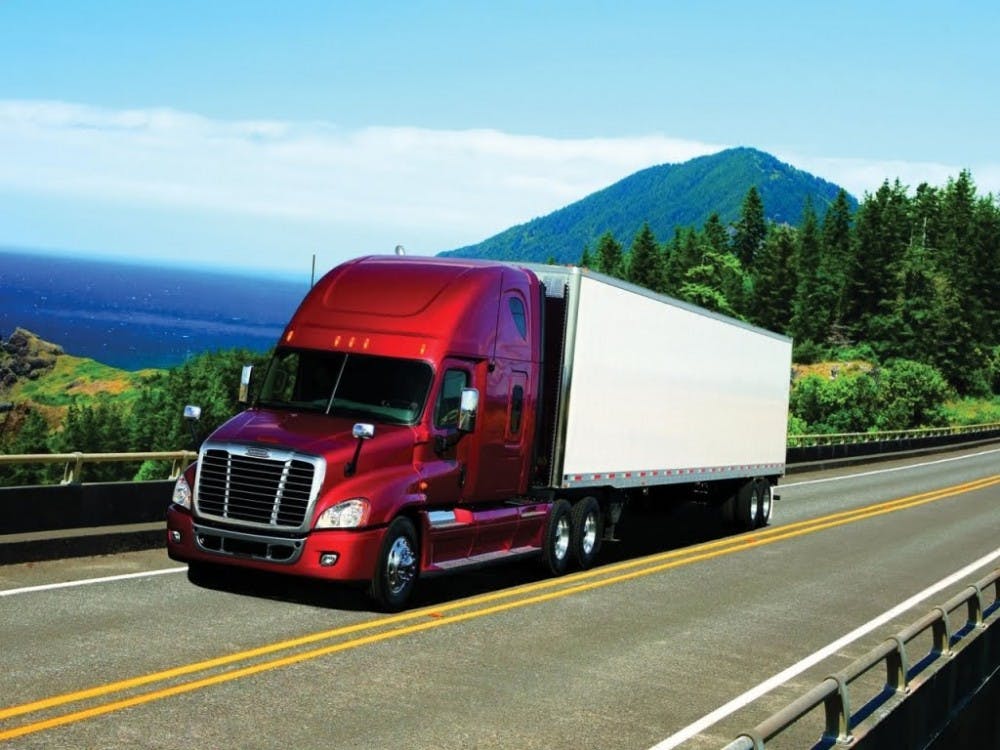Does automation help or harm low-skilled workers? The answer is perhaps that it depends on industry context and social trends. The trucking industry gives us intriguing insight into the way automation might be good for both an industry and its workers -- with minimal need for re-training that workers may be unable or unwilling to undergo.
Self-driving vehicles have long been predicted to hit truckers hard. Impending losses in the industry seemed all the more poignant given that most truckers belong to the same demographic group that is badly affected by the shocks to manufacturing jobs, namely men without a college degree.
A report by Goldman Sachs, for instance, predicted 300,000 job losses a year with the saturation of self-driving vehicles, most of which would occur in the trucking industry.
What Goldman’s model couldn’t take into account, however, is what long-haul trucking jobs actually look like or are perceived. Drivers spend long periods of time on the job away from home and family. Hours are inflexible. Many suffer from undiagnosed sleep disorders, in turn putting them at risk of serious accidents on the road.
Even as drivers work longer hours, the rise of independent contracting from deregulation has diminished pay and reduced employee Social Security benefits. Economist Michael Belzer has nicknamed trucks “sweatshops on wheels”. The industry predictably has trouble attracting young Americans to the job and is approaching a near 100% turnover each year.
On the other hand, the demand for freight is rising due to e-commerce and a recovering US economy. In late December last year, only one truck was available per twelve loads that required freight, forcing retailers to pay steep rates to keep goods moving. According to the American Trucking Association, around 900,000 new truckers will be needed over the next decade. In other words, there is a shortage.
Uber claims it could reinvent the job and even create more with an ambitious plan to automate trucking. It does not intend to turn the entire process over to self-driving cars. Rather, it hopes to set up a network of transfer hubs across the country.
Self-driving trucks will ply long and monotonous highways between these hubs. At the hubs, humans will take over for the shorter and more difficult drives through urban areas. Last month, Uber announced that its self-driving trucks had already hit Arizona highways, albeit still with truckers on board as a precaution. The shorter drives that this type of trucking entails could make the industry more attractive.
Moreover, given that labor costs are around 75 percent of the cost of transportation by truck, reduced costs from automation could further increase demand for freight, creating still more short-haul jobs.
However, to truly improve trucking jobs, Uber will have to find a way to prevent exploitation within the system of independent contracting its automation model will inevitably reinforce. Under this system, drivers have little to no control over the loads they haul and the companies they work for.
Furthermore, the deunionization of the industry has meant that truckers don’t have collective political bargaining power of their own to advocate for better laws. It remains to be seen whether and how Uber will push for changes to the way drivers are paid.
At any rate, truckers are unlikely to face abrupt displacement by autonomous vehicles anytime soon. What happens in the long run, when self-driving technology is better able to perform complex navigation, is the question we will have to ask next.
Taxi and rideshare drivers -- many of whom are of economically vulnerable immigrant groups -- may have to face this question even sooner. But one thing is clear: the effects of automation aren’t just about technology. They involve how technology interacts in each specific context with the law, demographics and politics.





